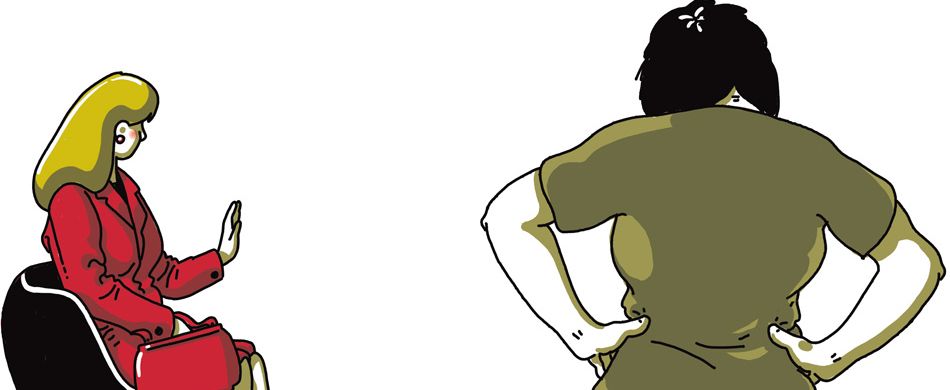SHE WAS 16 and certainly not very attractive, so much so that her companions in the institute where she lived called her “Ugly Mary” behind her back. She was very tall, massively built and muscular, and if any of her companions dared to make fun or annoy her, she would unceremoniously punch or slap them in the face. During her childhood she must certainly have encountered someone stronger than herself because of her broken nose, which looked like that of a boxer. This, however, did not seem to bother her in the least, and she sported her nose like a trophy to prove to the world that anyone bulling her would do so at their own risk.
The institute was run by capable and loving nuns who had taken Mary into their care since she was a child, just like all her other companions who had been removed from their dysfunctional families by social services.
Her mother was a very attractive woman who worked as a prostitute but was allowed to see her daughter anytime she wanted. Unfortunately she only went rarely, but always once before Christmas, perhaps to soothe her conscience. She would give her daughter some pocket money and a small gift, and then go away. She stayed just long enough to see her child and repeat, as she always did in her daughter’s presence, that she could not understand why the Lord had given her “such an ugly, graceless daughter!”
Needless to say, after these visits Mary always fell into depression and became more violent and quarrelsome than before. The nuns were so desperate that in the end they sought help from the group of Secular Franciscans I belonged to before I became a friar.
Every Saturday we accompanied Mary and a few of her companions on a pleasure trip or to the cinema so as to give them the opportunity to meet other boys and girls their own age and to wind down from the daily grind of the institute. We never had any problems with them during these outings. They were, in fact, rather wary of making new acquaintances and preferred to remain close to us. In time, however, they became more confident and started making new friendships. This experience soon began to bear fruit, especially for Mary. She couldn’t wait for Saturday to arrive, and she started looking after her own person and her looks much more than she had before; she stopped swearing and was no longer so violent.
In the space of a few months she even found a boyfriend: a very nice, sweet young man who worked in a hardware shop. Now all her friends in the institute looked at her in a different way. Ugly Mary was no longer so ugly, nasty or thuggish; she was now a young woman who, though certainly not beautiful, had a kind smile for everyone.
In the autumn of 1976 I left my job and entered formation to become a friar. I therefore lost sight of Mary for over a year until I received a terrible call from the Mother Superior of the Institute: Mary had taken her own life! She had hung herself in the garret and had been found after a long search by her roommate.
Mary had left a note saying that in reality she had never loved the young man everyone believed was her boyfriend. That young man had been good to her and had, in fact, helped her a lot. It was a nice feeling to know that her friends envied her; it was nice to have a person who cared about her, who phoned her…. Unfortunately… she did not like men… and for this reason she wanted to go to heaven where she would finally be happy.
Mary’s death was a deep shock for me. For a long time I felt guilty for having failed to understand her inner drama and secret; for not being able to help her.
It is very common for lesbian, bisexual, gay and transgender people to suffer in silence while they are the target of violence and discrimination. We should all be vigilant and make sure that these people do not feel unwelcome, excluded and shamed. After all the Catechism of the Catholic Church explicitly says that Catholics are called to treat homosexuals with “respect, compassion and sensitivity. They do not choose their homosexual condition; for most of them it is a trial. Every sign of unjust discrimination in their regards should be avoided. These people are called to fulfill God’s will in their lives and, if they are Christians, to unite to the sacrifice of the Lord’s Cross the difficulties they may encounter from their condition” (#2358).
The Lord’s mercy is never ending and during all these years I have often prayed for Mary. I hope God has forgiven her for refusing the gift of life. I pray that the Lord has accepted her into His divine presence so that poor Mary may finally find the peace and love she longed for so deeply.




